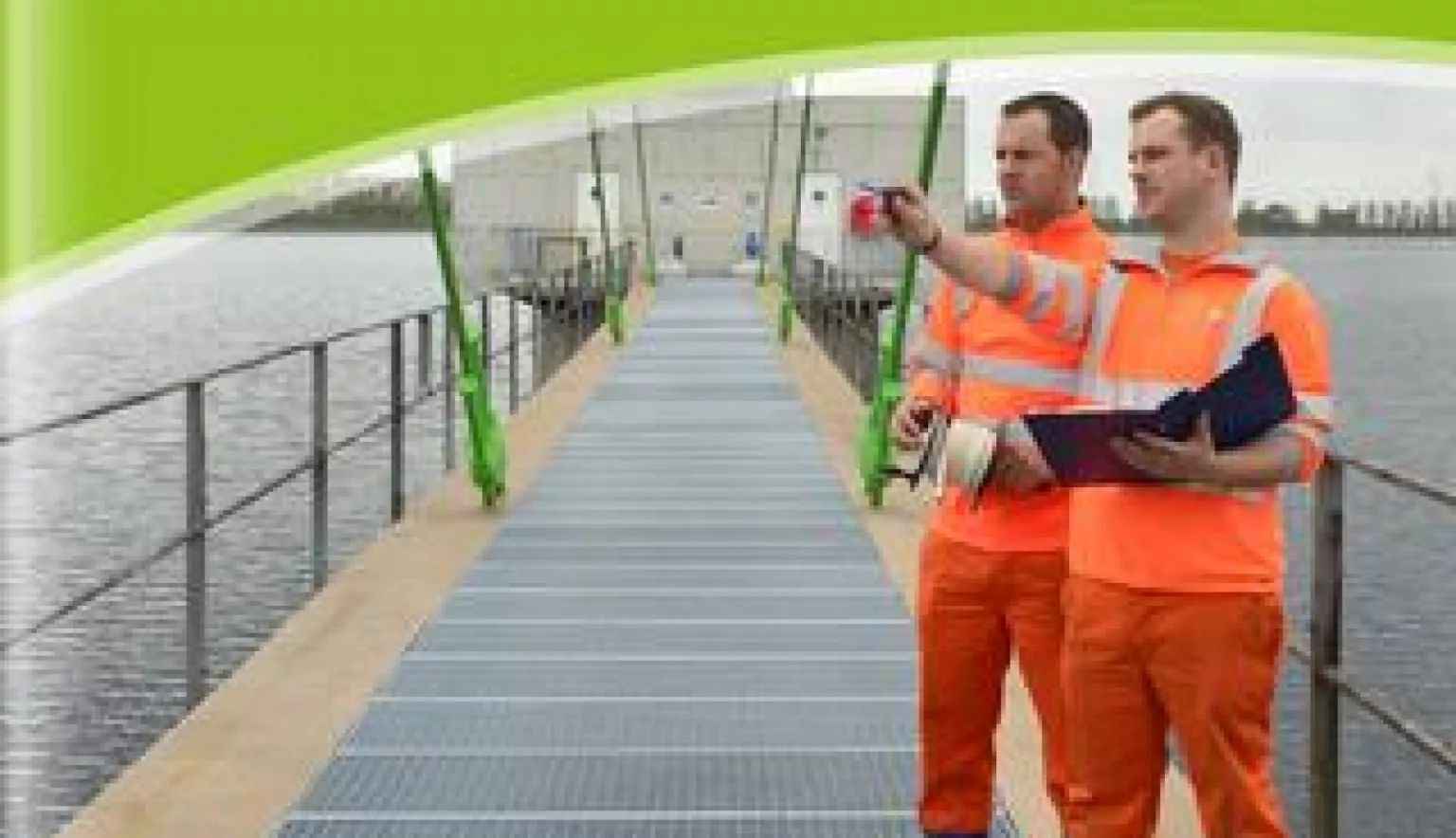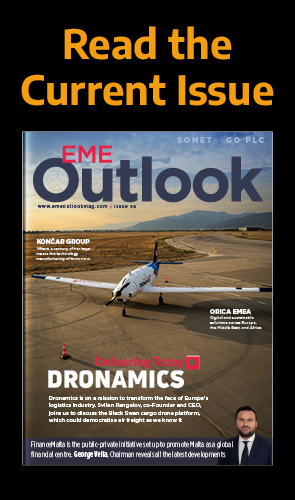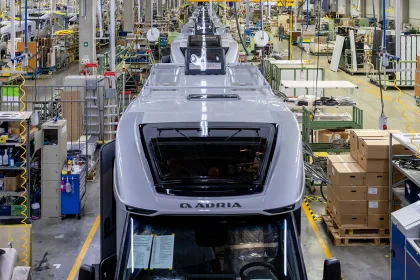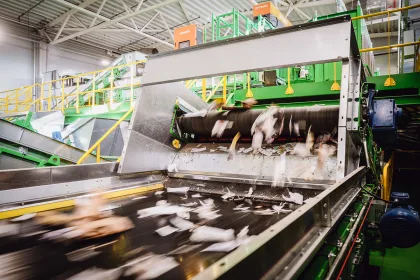De Watergroep is adopting a circular approach to system innovation and sustainability in order to take 105 years of water provision in Flanders to the next level.
FOR TOMORROW’S GENERATION
Evolution for any company is of course a necessity, but evolution in the midst of an industrial, technological and regional transformation and a shift in customer expectations is a different proposition altogether. However, with more than 100 years of experience in Flanders, Northern Belgium, De Watergroep is rising to this exact challenge, driven by a new CEO who is keen to balance a century of reputation with the most forward-thinking of strategies.
Founded in 1913, the autonomous public water company is the biggest of its kind in the region, catering for 1.3 million connections across 180 municipalities, and serving more than 3.5 million customers. With a pipeline network of 34,000 kilometres and an annual production of 127 million cubic metres of water, the scale of De Watergroep is unquestionable, but rather than perceiving the Company as untouchable, new CEO, Hans Goossens instead intends to leverage this influence to make the business more relevant and advanced than ever before.
“I have a background in the chemicals industry but I noticed that Flanders, and indeed the rest of Europe, is in for a time of change and transformation, which I think is better handled by a newcomer in the water business, rather than by someone who has been in the system for too long,” he introduces. “There is going to be a decade or more where the water sector is really going to be a challenging but attractive working place, so I have spent this first year addressing the structure of the business, the technologies in operation, and the way we both use and waste water.”
Initially thriving as a drinking water company, De Watergroep as a whole has expanded and diversified over the past two decades to become a leading integrated water entity.
The growth within the drinking water market is driven by an organic process of consolidation in Flanders whereby 11 Flemish municipalities have been taken over from a water distribution perspective since 1 January, 2018 alone.
Subsequently inheriting as many as 184,000 customers, the trajectory is clearly positive, but it also makes the aforementioned requirement to improve operations all the more critical.
“It is very important for us to guarantee a 24-seven reliable, continuous service,” Goossens emphasises. “It’s not the type of playground where you adopt a trial and error strategy and see where it ends.
“But at the same time, being static or only implementing minor adjustments is not good enough. So that means we need to bring in a spirit of being open to change and innovation while looking over the fence and working with other sectors too, in order to bring a sense of entrepreneurship back to De Watergroep.”
SOCIETAL MISSION
Additional to the Company’s core drinking water division, growing markets also include customised water treatment, engineering consultancy in the water cycle, and sewerage systems and wastewater treatment. The Company’s expertise in a broad range of technologies is fit for implementation on both the regulated and the non-regulated markets, with a strong focus on circular systems. On an annual basis, De Watergroep produces seven million cubic metres of process water, made to measure the needs of various types of industrial customers.
The Company has also set up a partnership with sewage treatment company, Aquafin, offering wastewater management services to cities and municipalities. And to cater for such diversity, job one for Goossens has been to overhaul the Company’s internal structure; transforming the business from a geographically organised structure to a process-driven organisation.
“For historical reasons, every province within De Watergroep’s distribution area has its water service, supported by our HQ in Brussels. But this model will change in accordance with our business processes, streamlining operations to address areas of production, distribution, business support and commercial,” Goossens explains. “This complete overhaul has not yet finished but has begun well.”
The reason for the ideologies’ immediate success is largely due to the retention of De Watergroep’s values, mission and vision; even while structural elements are being transformed around them.
Goossens continues: “A mission or vision doesn’t have to be changed just because there is a new CEO, but what we have done is hire a new HR Director with the aim of clearly ramping up our human resource strategy.
“Being a public, partially Government-owned, Company, there is a need to modernise the personnel statute and to ensure the focus is on the profile of the Company, instilling a societal mission and clear purpose in each individual. A dynamic HR policy is a strong tool to meet the dynamism of the markets.
“People recognise themselves in that purpose in knowing what needs to be done to provide customers with water, 24-seven.”
CIRCULAR MODEL
Internal refinements and external process improvements are not mutually exclusive, however. While Goossens is inevitably striving to improve both strands, there is an intrinsic link between the two, and while the former overhaul is ongoing, the latter is already being implemented as De Watergroep looks to embrace digital transformation and a circular ideology.
Trends including water scarcity, sustainability, circular systems for industrial application, online data recording, and the reduction of wastewater flows are joined by a plethora of sewage treatment concerns and regulated drinking water complexities; all of which need to be mitigated by the use of more advanced technologies such as IoT, smart distribution, smart metering and the removal of pollutants.
“It’s important that we keep our focus on water through the leveraging of technological knowledge we have developed,” Goossens affirms. “Innovation is essential in order to keep the lead in the sector, and we believe circular systems will become increasingly important for all strands of customers.”
34,000 kilometres of distribution pipelines is a tremendous amount to be affected by such changes, but as the technologies and processes become more efficient, so too will De Watergroep’s ability to renew and expand its assets.
The CEO adds: “From a hardware perspective, there is the need to make sure the traditional model is kept in good shape but at the same time invest more and more in circular models; beginning with living areas and flats and offering circular assistance in order to reduce the need for freshwater by as much as 60-70 percent.
“As a result, we transform from being a seller of water, to a company that offers the availability of water, as a service. We make sure the water is there and make sure we have new technologies to maintain that status.”
New laboratory equipment, membrane technologies and smart systems have already aided aspects of water extraction and treatment, softening, data analysis, and international trend monitoring; and with the digital tools becoming available now, there is more potential than ever before to fast-track De Watergroep ahead of the industry curve.
TAKING THE LEAD
The concept of international monitoring is especially pertinent, despite the Company’s largely local outlook. Flanders remains an overriding priority, but De Watergroep’s mission is to bring global best practices to the region.
This aids the Company’s overall, non-profit-driven purpose and its encompassing focus on delivering efficient 24-seven services to inhabitants of the territory for an as low as possible water tariff. Although De Watergroep is a public company, it is fully self-financing.
Having realised this vision though, and with one eye already glancing over at international influences, there has also derived an organic potential to conduct operations across a broader footprint too.
“Recently, we have developed activities abroad and already have overseas customers,” Goossens details. “We are building a new water production plant in Commewijne in Suriname and we are offering consultancy services for the expansion of drinking water production and distribution in the city of Mysore in India.”
De Watergroep balances and assesses the risk of its efforts for each international opportunity so not to dilute its overall business model. But by migrating sensibly into these more commercial consultancy-based realms, the width of operations is vaster than ever before; a notion completely in-keeping with Goossens’ and the Company’s overall goals moving forward.
“For sure we want to see the further expansion of our business, based on circular systems,” he concludes. “This can transpire across both industry and domestic water segments and I’d like to see us double that business over the next five years.
“In turn, I’d like to see our business model transforming as a result of being a circular system-oriented water company. There is a transformation taking place in Flanders and we want to make sure we are taking the lead in driving it, not just reacting to it.”


































